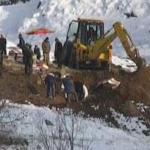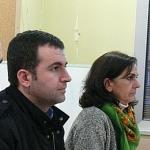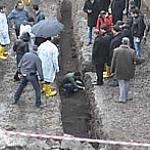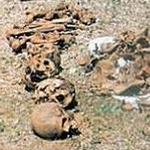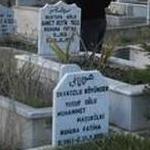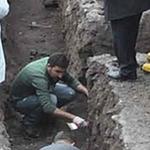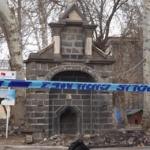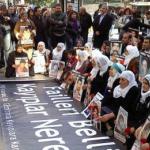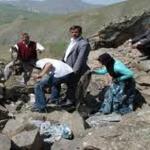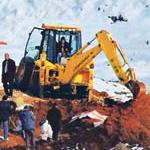1,469 Bodies in 114 Mass Graves - More to Come
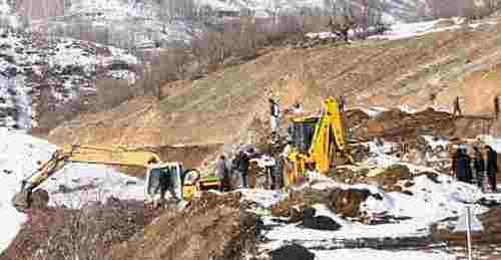
According to a research on mass graves carried out by the Turkish Medical Association (TTB), bones belonging to 1,469 people have been found in 114 mass graves so far. Excavations of 26 mass graves uncovered the remains of 171 people. The TTB announced that the real dimensions of this issue were going to exceed these numbers by far.
The research delegation was joined by TTB Central Council members Dr Osman Öztürk, Dr Halis Yerlikaya besides the Secretary General of the Ağrı Medical Chamber Dr Heval Bozdağ and Osman İşçi from the Human Rights Association (İHD).
The members of the research delegation went to the predominantly Kurdish region of south-eastern Turkey between 19-20 February and talked to relatives of disappeared persons in Mutki (Bitlis), Siirt, Batman, Diyarbakır and the districts of Kozluk, Hazro and Silvan. They furthermore spoke with executives of the İHD and MEYA-DER, the Mesopotamia Solidarity and Culture Association for Families who Lost their Relatives. The experts also carried out field research at the mass graves.
A preliminary evaluation was announced at a meeting on 21 February attended by Dr Eriş Bilaloğlu, President of the TBB Central Council, and council membes Öztürk and Dr. Arzu Erbilici.
"At city centres and on roadsides"
* It was stated that bones belonging to 1,469 people were found in 114 mass graves so far. The remains of 171 people were found during the excavations of 26 mass graves. However, the experts expect much more to come. In the broad geographical region between Hakkari and Tunceli, thousands of unidentified bodies were buried in hundreds of mass graves.
* Mass graves were found in city centres, on roadsides, in waste dumps and rural areas.
* Article 10 of the Application Regulation of the Forensic Medicine Institute (AKT) Law foresees 15 days for the "duration of display" to complete the autopsy procedures in order to determine the identity of an unidentified body. However, this "duration of display" was not granted to the people who died in armed conflicts; family were denied the opportunity to take the bodies.
* The families' "right to a farewell" was not being recognized since the families were not given the bodies of their deceased relatives. This paved the way to chronic traumata.
* The families of the people who died in armed conflicts or became victims of unsolved murders demand to open the mass graves immediately and to let them have the remains of their dead relatives. Some families do not apply for this because they are afraid of oppression.
"Evidence might be obscured"
* Evidence might be obscured because the excavations have not been carried out according to the Minnesota Autopsy Protocol so far. The excavations were done without the necessary caution by using shovels and diggers; techniques for opening mass graves and identifying the bodies were not applied.
* The files sent to the Forensic Medicine Institution a long time ago for a DNA analysis necessary to confirm the identity of a body are still lacking results.
The TTB announced that information on mass graves should be taken into account to determine further locations. The medical association demanded to protect these areas and to apply the rules of the Minnesota Autopsy Protocol as approved by the United Nations. "The excavations have to be carried out carefully by using archaeological techniques. Forensic medicine experts should be appointed to collect and evaluate biological evidence revealed in the excavations", the association urged.
Mass grave found in Bingöl
The Human Rights Association Branch of Bingöl declared that 237 mass graves were found in the centre of Bingöl and the surrounding districts. İHD Bingöl Branch President Nihat Aksoy said in an interview with bianet that 156 of them are officially recognized while information on other locations were based on local sources.
Aksoy said that the other 81 mass graves have not been recognized by the official authorities yet despite solid evidence.
Lawyers not informed about excavations in Mutki
On 22 February, the excavation of a mass grave recently found in the garden of the Gendarmerie District Command in Mutki (Bitlis) was continued. The involved lawyers and the attorneys of the İHD were not informed about the continuation of the excavation because the file had been labelled as "classified".
The excavation was initiated upon allegations that five people had been buried in the area. After the prosecutor had ordered the excavation upon the statement of a witness, 18 bodies were found in this location.
İHD Bitlis Branch President Hasan Ceylan told bianet that they were informed about the continuation of the excavation a while after it had been resumed. Ceylan said that they objected the labelling of the file as "confidential". Lawyer Enis Gül, Head of the Bar Association in Bitlis, went to the location and monitored the excavation later on. (AS/EÖ/VK)




